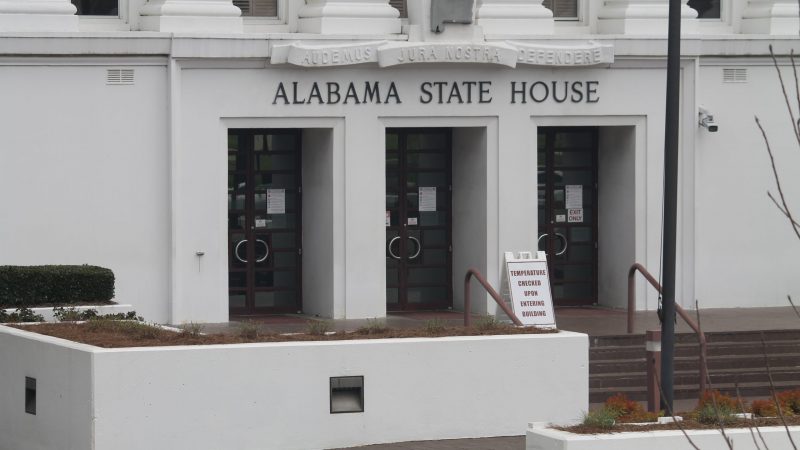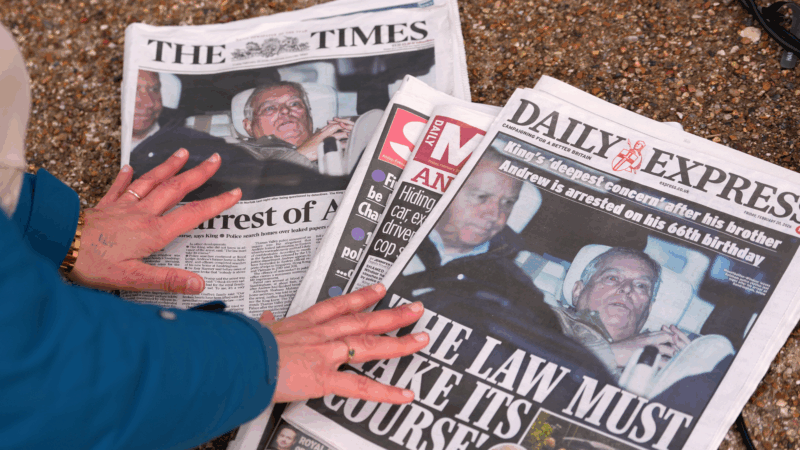Crime and education on the agenda for the 2025 legislative session
The 2025 legislative session in Alabama kicks off Tuesday, Feb. 4 with plenty on the agenda. Education, public safety, and of course the budgets are expected to come up. We get a preview of what’s ahead with Todd Stacy, host of Capital Journal on Alabama Public Television.
The following conversation has been edited for clarity.
We’ve had some very flush budgets in the past few years. What’s the outlook this year?
You’re right. We’ve had some record budgets really going back several years. And that should continue in the technical sense. They’re going to have a little bit more growth. But the years of incredible growth, exponential growth, if you will, on the Education Trust Fund especially, those days are coming to an end. You’re going to get back to more normal year-to-year budgeting. You will have small surpluses this year, but not the billion dollar surpluses that we’ve seen in the past two years.
A lot of that was due to federal funding kind of trickling up through the tax base and overinflating the budgets. And so lawmakers are going to have more normal budgets to deal with, but still increases in revenue.
Lawmakers have been discussing making changes to how public schools are funded in Alabama. What changes could be in store there?
We’ve basically had a funding model since the mid -90s, early 90s, based on just a head count — how many students are going to school in your district and you get a dollar amount per student to cover that. Well, it doesn’t cost the same to educate every student. If you have an English language learner, that’s more expensive to educate that student. A special needs student, it costs more. Those in poverty. Those districts that have disproportionate numbers of those challenges really end up losing funding because they’re not made whole.
So the state is really looking at changing that, doing what other states have done, and kind of weighting state funding to say, “Okay, if you have a certain number of these students, we’re going to give you some more to help cover those costs.” And it all kind of comes out in the wash. Nobody would lose state funding or anything like that. But that’s what they’re sort of trying to move to. But of course, any time you start talking about education funding it will be controversial. So look for that to be an interesting debate this session.
Here in Birmingham, we’re coming off a year that saw a record-breaking number of homicides. That’s among the reasons officials in Montgomery are talking about public safety. What proposals related to crime are we expecting this year?
Crime is going to be at the top of the list. Specifically, you’re looking at policy and funding to help along these task forces in cities. You’ve had one here in Montgomery that brought together city, county and state officials and in some cases, the federal officials to really help supplement the police department. We know that there’s a big shortage of police, especially in cities like Montgomery and Birmingham. It’s been an effective tool here. And I know they want to do the same thing in Birmingham, the same thing in Huntsville and Mobile, these task forces. So I think you’ll see legislation to help fund that, but also put some policies in place that make it easier for those agencies to work together.
I also think you’re going to see legislation to finally ban these Glock switches. It’s already against the law federally, but state law enforcement doesn’t have that legal tool to apply it. And of course, these Glock switches just turn regular handguns into machine guns, practically, and you’ve seen them being used in some of the state’s worst mass shootings. [A ban got] to the House last year. I think they’re committed to getting it in state law. So those are two things that they’re looking at to really go after the crime problem.
One issue that took up a lot of oxygen last year and has been on the table year after year is a lottery or expanded gambling in Alabama. What’s the chatter around that topic?
There’s chatter every year, right? Last year, there was actually legislation. It passed the House overwhelmingly, ended up going to die in the Senate. We talked all about that. Because of that failure last year, the House is not really not eager to get that conversation started. They say, “Look, if the Senate wants to start something on gambling, fine. But we’re not going to waste our time and spend our wheels in the House.” Will that mean it’s possible? Sure. It’s always possible.
The biggest reason it could be this year is that the Poarch Creek Indians have recently purchased that Birmingham Race Course. That is a non-tribal land. And so they are now kind of in the boat as the dog track casinos in terms of needing changes to state law to operate a casino. And so that could tip the scales a little bit in terms of cooperation between the Poarch Creeks and the dog track casinos. They’ve kind of been competing in the past. That may be changing and that would be a big development on the gambling front.
Finally, what are you going to be watching for this session?
I’m always watching on the education front. We had some big news. The National Assessment of Educational Progress, known as the Nation’s Report Card, came out and had some really good news for Alabama, especially our fourth graders. Our fourth graders are now ranked 32nd in math scores, a huge gain, the most gains ever and the most gains of any state in the country. Also some really good on reading.
So these legislative initiatives like the Literacy Act and the Numeracy Act, focusing funding and policy at those early grades, is finally starting to pay off. And when lawmakers see these numbers, they just light up. So it’s that positive reinforcement. And so what will they look to next? We have some problems in the middle grades. So I always look to education to see, “OK, now that we’ve seen how strong public policy can move the needle, what are we going to do next?” And I’m going to be eager to see what they get into.
The U.S. men’s hockey team to face Slovakia for a spot in an Olympic gold medal match
After an overtime nailbiter in the quarterfinals, the Americans return to the ice Friday in Milan to face the upstart Slovakia for a chance to play Canada in Sunday's Olympic gold medal game.
NASA eyes March 6 to launch 4 astronauts to the moon on Artemis II mission
The four astronauts heading to the moon for the lunar fly-by are the first humans to venture there since 1972. The ten-day mission will travel more than 600,000 miles.
Skis? Check. Poles? Check. Knitting needles? Naturally
A number of Olympic athletes have turned to knitting during the heat of the Games, including Ben Ogden, who this week became the most decorated American male Olympic cross-country skier.
Police search former Prince Andrew’s home a day after his arrest over Epstein ties
Andrew Mountbatten-Windsor, the British former prince, is being investigated on suspicion of misconduct in public office related to his friendship with the late convicted sex offender Jeffrey Epstein.
Violinist Pekka Kuusisto is not afraid to ruffle a few feathers
On his new album, the violinist completely rethinks The Lark Ascending by Ralph Vaughan Williams, and leans into old folk songs with the help of Sam Amidon.
Supreme Court strikes down Trump’s tariffs
The 6-3 ruling is a major blow to the president's signature economic policy.







